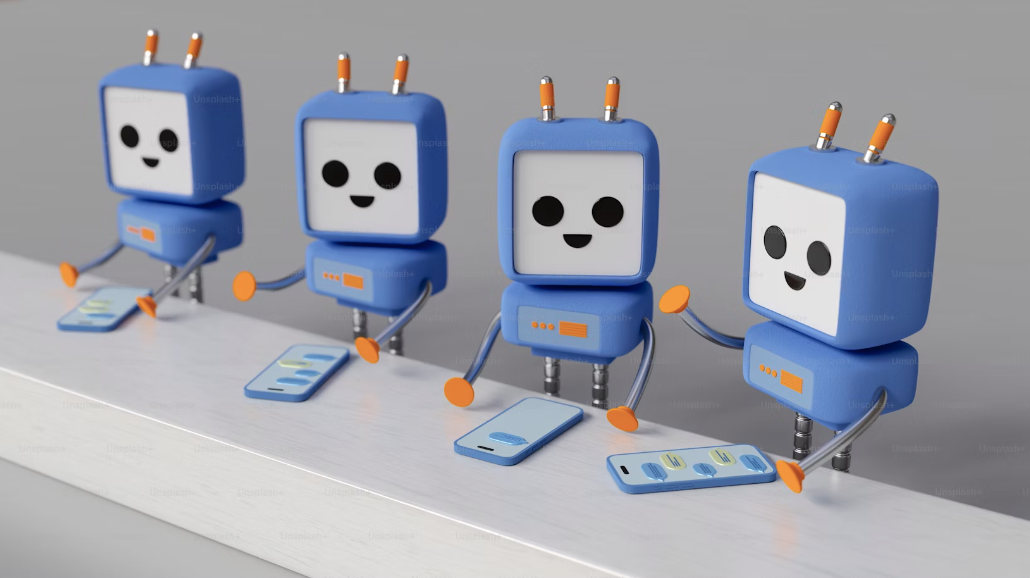The Future of AI Chatbots: Enhancing Business Efficiency and Customer Engagement in 2024

In today’s digital age, artificial intelligence (AI) chatbots have become a cornerstone of modern customer service and business operations. Their ability to handle a wide range of tasks—from answering customer queries to streamlining internal processes—makes them invaluable assets for businesses across various industries. As we move into 2024, AI chatbots are evolving with new capabilities that promise to transform how businesses interact with their customers and manage their operations. This blog post delves into the latest advancements in AI chatbots, explores their benefits, and provides insights into how businesses can leverage these technologies to drive success.
1. The Evolution of AI Chatbots
AI chatbots have come a long way from their rudimentary beginnings. Today’s chatbots are powered by advanced AI and natural language processing (NLP) technologies that enable them to understand and respond to human language with greater accuracy.
Key Advancements:
- Contextual Understanding: Modern chatbots can grasp the context of a conversation, making interactions more natural and coherent.
- Emotion Detection: Advanced chatbots can recognize and respond to the emotional tone of messages, providing a more empathetic user experience.
- Multilingual Capabilities: AI chatbots now support multiple languages, allowing businesses to cater to a global audience.
Impact:
- Improved Accuracy: Enhanced NLP and contextual understanding lead to more accurate responses and better customer satisfaction.
- Broader Reach: Multilingual support opens up new markets and improves accessibility for non-English speaking customers.
A global eCommerce company uses an AI chatbot with multilingual capabilities to provide customer support in various languages, resulting in increased customer engagement and reduced support costs.
2. Transforming Customer Service with AI Chatbots
AI chatbots are revolutionizing customer service by providing instant, 24/7 support and handling a wide range of queries without human intervention.
Benefits:
- 24/7 Availability: Chatbots offer round-the-clock support, ensuring customers receive assistance whenever they need it.
- Instant Responses: AI chatbots can provide immediate answers to common questions, reducing wait times and improving customer satisfaction.
- Handling Complex Queries: Advanced chatbots are equipped to manage complex inquiries and escalate issues to human agents when necessary.
Strategies:
- Automated FAQ Responses: Use chatbots to handle frequently asked questions and routine inquiries, freeing up human agents for more complex tasks.
- Personalized Assistance: Implement chatbots that use customer data to offer tailored support and recommendations.
Impact of AI Chatbots on Customer Satisfaction
A telecom provider integrates an AI chatbot into its customer service operations, resulting in a significant reduction in response times and an increase in customer satisfaction.
3. Enhancing Business Efficiency with AI Chatbots
Beyond customer service, AI chatbots can streamline various business processes, improving operational efficiency and reducing costs.
Applications:
- Lead Generation: Chatbots can engage website visitors, qualify leads, and schedule appointments, supporting sales teams in generating new business.
- Data Collection: Automate data collection and analysis through chatbots, providing valuable insights for decision-making.
- Internal Support: Use chatbots for internal tasks such as IT support, HR inquiries, and administrative functions.
Benefits:
- Cost Savings: Automating routine tasks with chatbots reduces the need for manual intervention, leading to cost savings.
- Increased Productivity: Chatbots handle repetitive tasks efficiently, allowing employees to focus on higher-value activities.
A financial services firm deploys an AI chatbot for lead generation and appointment scheduling, leading to a streamlined sales process and increased efficiency.
4. Designing Effective AI Chatbots
Creating an effective AI chatbot involves more than just integrating technology. The design and implementation process plays a crucial role in ensuring the chatbot meets user needs and delivers value.
Best Practices:
- Clear Objectives: Define the chatbot’s primary functions and objectives to ensure it aligns with business goals.
- User-Centric Design: Design chatbots with the end-user in mind, focusing on creating an intuitive and engaging experience.
- Continuous Improvement: Regularly update and refine chatbot interactions based on user feedback and performance metrics.
Tips:
- Testing and Optimization: Conduct thorough testing to identify and address potential issues before deployment.
- Feedback Mechanisms: Implement mechanisms for users to provide feedback on their chatbot interactions, helping to improve performance over time.
An online retailer invests in user-centric chatbot design and ongoing optimization, resulting in a highly effective customer service tool that enhances the shopping experience.
5. The Future of AI Chatbots
As AI technology continues to advance, the capabilities of chatbots are expected to expand further, offering even greater potential for businesses.
Emerging Trends:
- Integration with IoT: AI chatbots will increasingly integrate with Internet of Things (IoT) devices, enabling seamless interactions across various platforms.
- Advanced Personalization: Future chatbots will leverage AI to provide even more personalized experiences, tailored to individual user preferences and behaviors.
- Voice Interaction: The rise of voice-activated chatbots will enhance user interactions through natural language voice commands.
Implications:
- Enhanced Interactions: More advanced chatbots will provide richer, more intuitive interactions, further improving customer experiences.
- Broader Applications: As AI technology evolves, chatbots will find new applications in various industries, offering innovative solutions to emerging challenges.
A tech startup explores the integration of AI chatbots with IoT devices, enabling users to control smart home systems through conversational interfaces.
Conclusion
AI chatbots are reshaping the landscape of customer service and business operations, offering unprecedented opportunities for efficiency and engagement. As we advance into 2024, the continued evolution of AI chatbots will bring even more sophisticated capabilities and applications. By embracing these technologies, businesses can enhance customer experiences, streamline operations, and stay ahead in a competitive market. Investing in AI chatbots today will prepare businesses for the future, driving success through innovation and efficiency.
Related Posts




